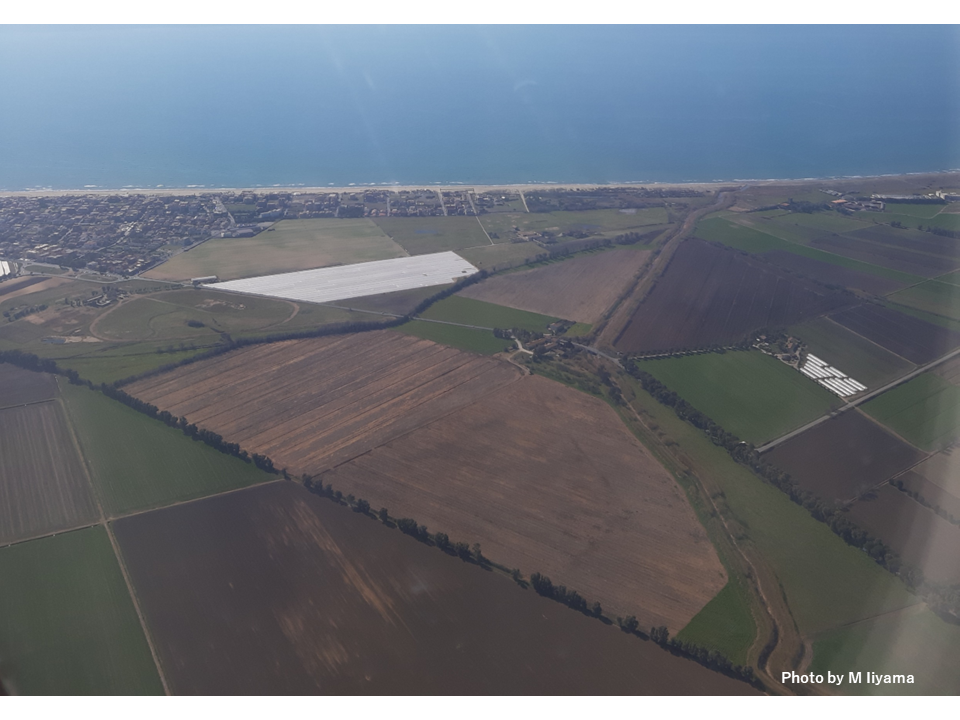Pick Up
958. The Future of Climate Change and Environmental Policies in Europe

958. The Future of Climate Change and Environmental Policies in Europe
The European Green Deal policy aims to reduce the use and risk of chemical pesticides across the EU by 50% by 2030 to meet the commitment to halt the loss of biodiversity in Europe. The European Commission has adopted the Sustainable Use Regulation (SUR), a proposal to reduce the use and risk of chemical pesticides and hazardous substances to meet the goals of the European Green Deal. While widely supported by scientists as the first binding regulation with pesticide reduction targets, the SUR was rejected by the European Parliament in November due to opposition amid uncertainty over European food and feed security following Russia's invasion of Ukraine.
However, on February 6, European Commission President von der Leyen announced plans to withdraw the SUR proposal, stating that it would be difficult to implement at this time amid growing opposition from farmers in European countries to the removal of subsidies and other measures. Developments in environmental regulatory policy in Europe will also influence international environmental policy discussions. Here is an editorial from the journal Science on the background and implications.
Despite their diverse agricultural backgrounds, European farmers find common ground in their frustration with meager incomes, rising costs, regulatory constraints, trade agreements, and the escalating frequency of extreme weather events. This discontent has spurred mobilization efforts, including roadblocks, in countries such as the Netherlands, Germany, France, Spain, and others.
European Commission President von der Leyen reportedly expressed concern that the SUR proposal had become a symbol of polarization and division and said he would continue dialogue and explore different approaches. The withdrawal of the SUR is seen as a concession to farmers and political groups in anticipation of the upcoming European Parliament elections in June.
In a policy paper released by the EU on February 6 (see below), the EU noted that it will reduce greenhouse gas emissions by 90% by 2040, but reduced the reference to specific targets in the agricultural sector that were in the draft. On January 31, it also relaxed the obligation to set aside 4% of fallow land, which was supposed to contribute to biodiversity and soil conservation, and said that farmers who do not comply will continue to receive EU subsidies.
Many EU researchers have expressed strong concerns about the rollback, saying the law was based on scientific evidence of sustainable agriculture. The agricultural economists noted that many farmers are facing difficult business conditions despite the fact that income growth in the European agricultural sector has been higher than in other sectors since 2005, and while they understood that the regulatory environment has become extremely complex over the past decades, they stressed the importance of continued dialogue between governments and farmers to achieve environmental goals.
Meanwhile, Nature has published an editorial on the EU report, which calls for a 90% reduction in greenhouse gas emissions from 1990 levels by 2040, with researchers expressing concern that the report is too ambitious. This is because the report's assumptions rely too heavily on technologies that have yet to be proven feasible, such as carbon dioxide capture, rather than prioritizing the reduction of fossil fuels.
The report is not yet legally binding, but is expected to form the basis for discussions on extending the EU's 2030 target. The 2040 targets focus on "net reduction," which means reducing greenhouse gas emissions while reducing the amount of carbon dioxide emitted through deep underground storage and injection of emitted gases. Carbon capture and storage (CCS) is a technology that reduces greenhouse gas emissions by storing and injecting emitted gases deep underground. However, there is no evidence that CCS can be implemented on a large scale.
To resolve the trade-off between climate change mitigation/environmental protection and food security, there is an urgent need to implement innovations that can both maintain and improve productivity and reduce environmental impacts. There is an urgent need to implement innovations that can both improve productivity and reduce environmental impact.
Contributor: IIYAMA Miyuki (Information Program)
